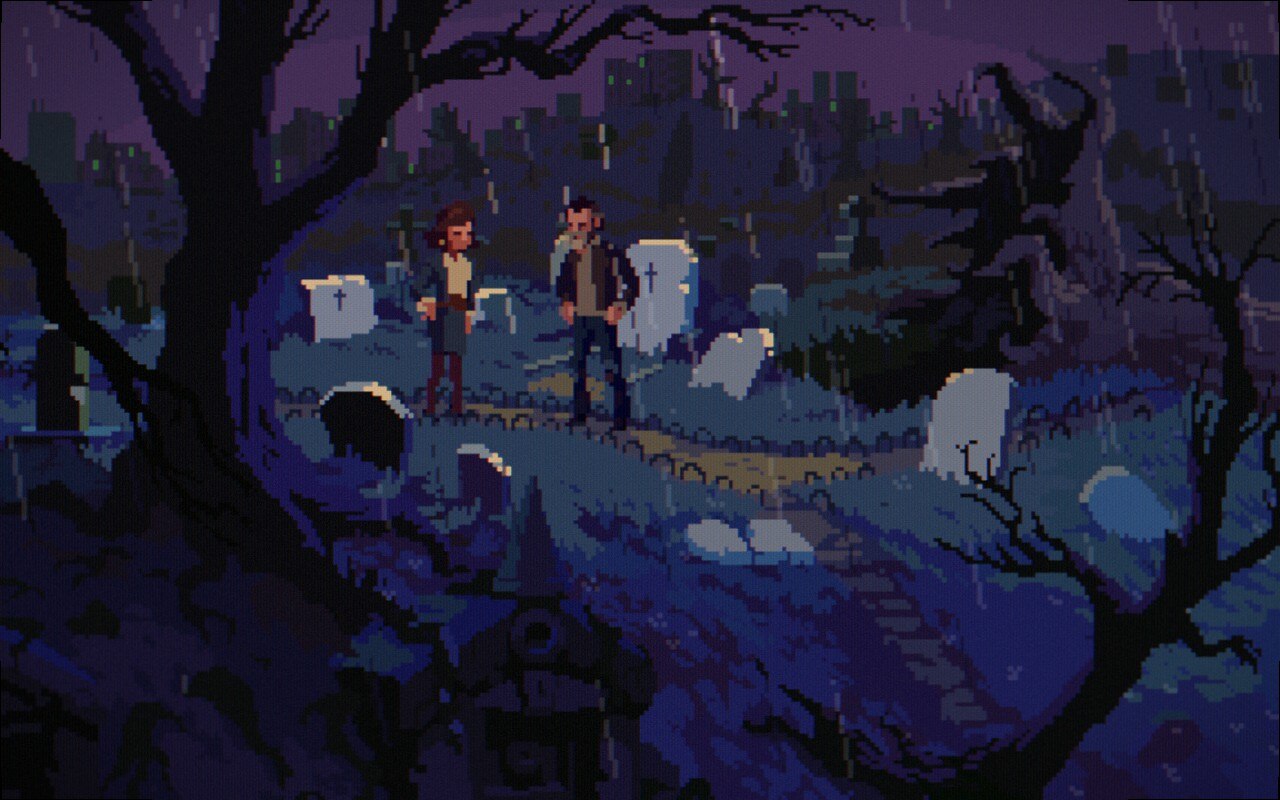Lunacid brings FromSoftware's original RPG series into the 21st century and is a perfect example of how to do PS1 nostalgia right
This dungeon crawler knows what made King's Field and Shadow Tower great years before the arrival of Dark Souls.
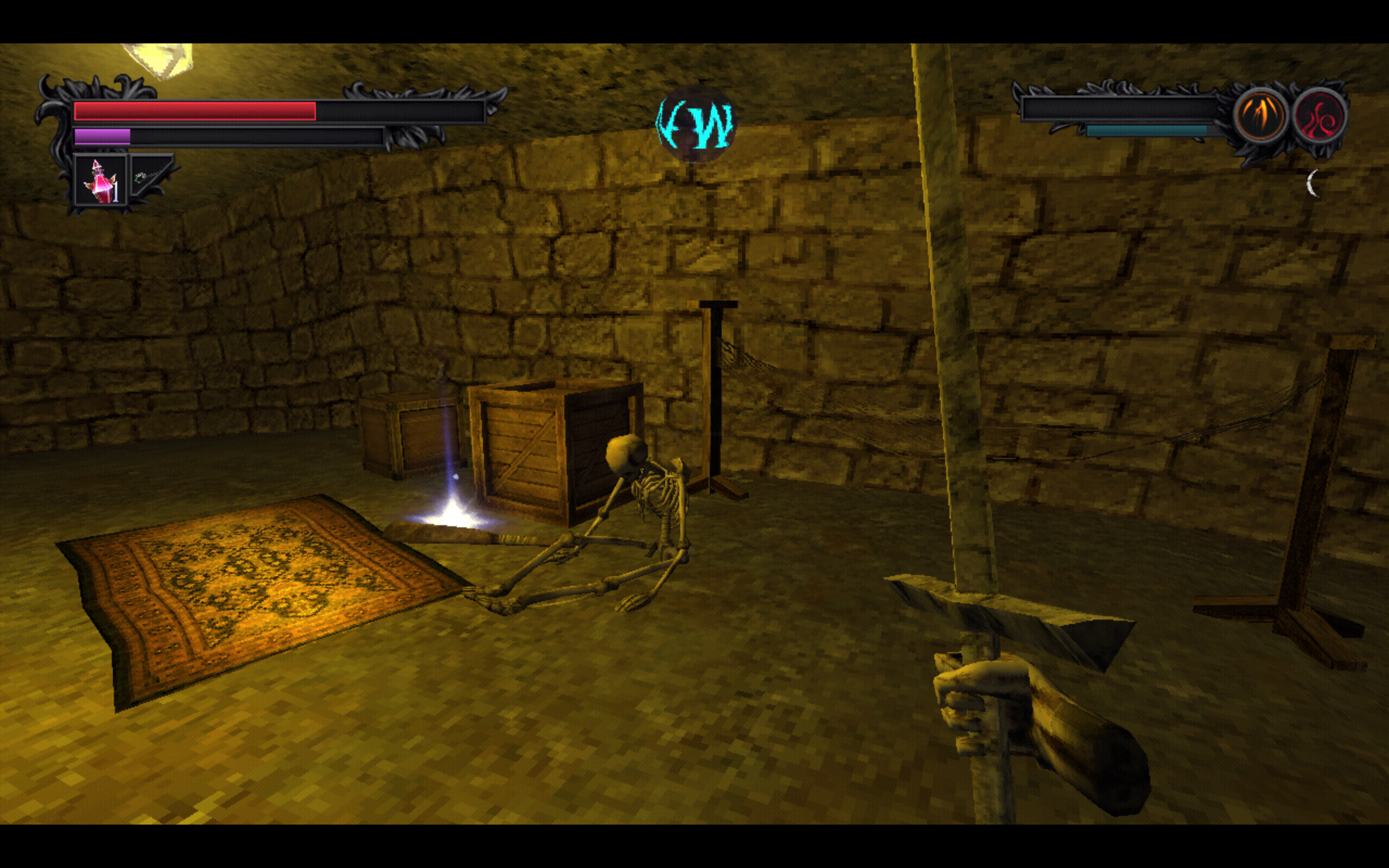
A lot of games claim to authentically recreate some beloved old style, whether that's 16-bit RPGs or a particular horror vibe, but few truly capture the spirit of their chosen era as well as Lunacid does. From the very beginning it's clear indie developer Kira understands that the PlayStation look—now almost 30 years old—is about much more than building something out of 20 pointy polygons when we're all used to seeing 20,000 smoothed ones. Lunacid's simple textures are heavily pixelated and often repeated, background details fade into simple silhouettes at a distance that's far too close for modern tastes, and wafer thin waterfalls endlessly slide their way into pancake-flat water.
Heck, even the menu fonts are oversized, as if they're intended for low resolution TV screens rather than modern displays. As crude as that may sound, there's a consistency to it all that makes any longing I have for cutting edge technical progress fade away in an instant.
Lunacid quickly recalibrated my rather spoiled ideas of what it means for something to look impressive or beautiful. In a pared down environment, a mysterious glow off in the distance or a curious sparkle in the dark is suddenly the most fascinating thing in the world. Carefully ordered stone walls really stand out after an hour or so of jagged caverns, silently implying I'm picking my way through the remains of a once-grand structure after a terrible calamity. Seeing flowers bloom in the remains of a desiccated corpse is still a grim sight even when the petals are angular and the body made from squarish blocks.
But Lunacid isn't just convincingly old, it's convincingly King's Field old. I've written about FromSoftware's first dungeon crawlers and the fans who are still modding them, drawn to their inscrutable feel. This game captures the design philosophy of FromSoftware's quirky first-person adventure games even better than it does the classic PlayStation aesthetic.
Early on I catch a glimpse of a stony path far below in the gloom, and instinctively understand that I might eventually reach that lower area with a little time and luck, but if I drop off the edge I'm standing on right now I'll achieve nothing more than a grisly death by gravity. I find locked doors and gates blocking my path and although I understand all too well I need to open them if I want to make my way further in, I'm not entirely sure I want to face whatever's waiting behind them.
Most unsettling of all, I'm never entirely sure how dead something is when I do cross a monster's path, even when it's missing its face.
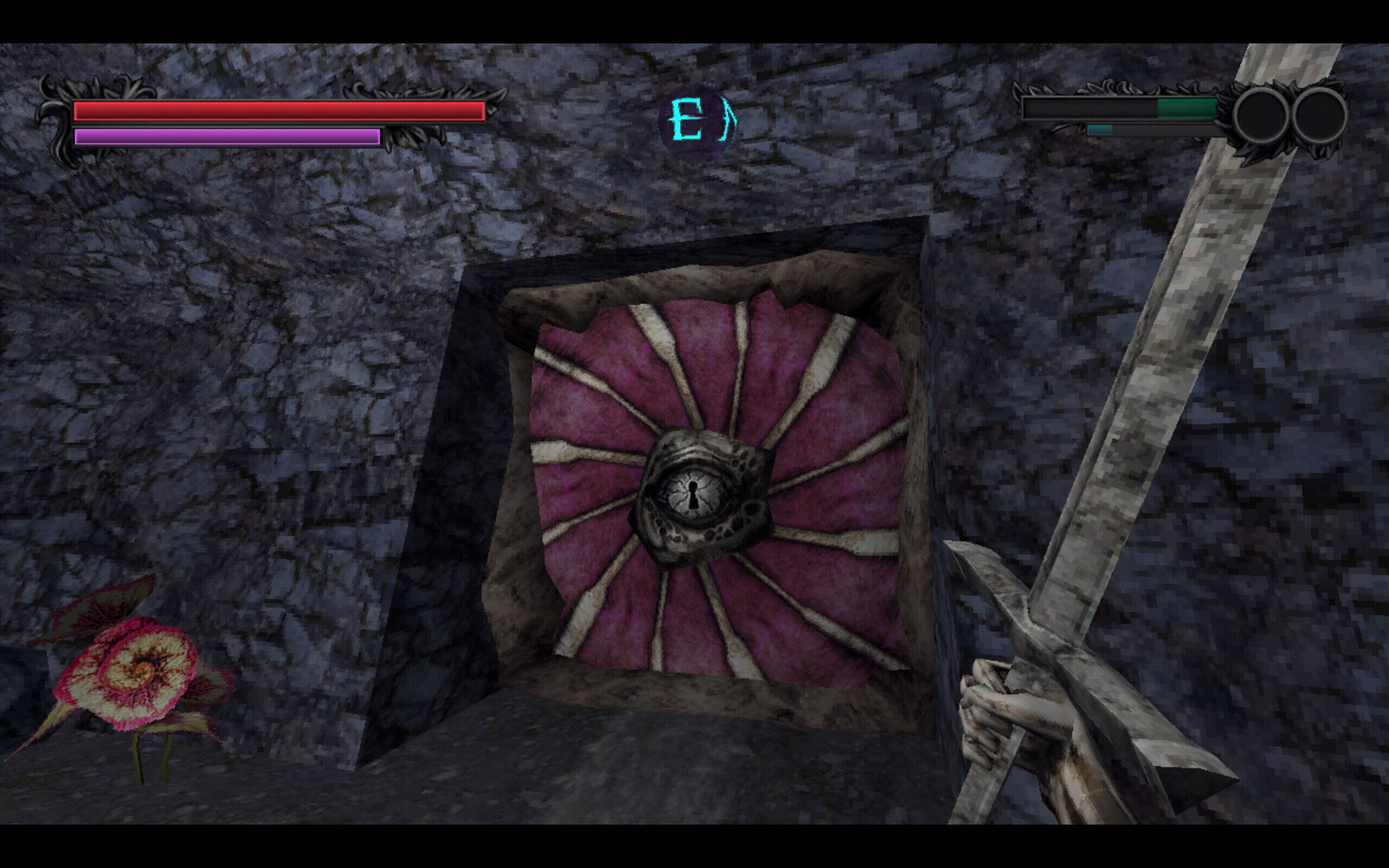
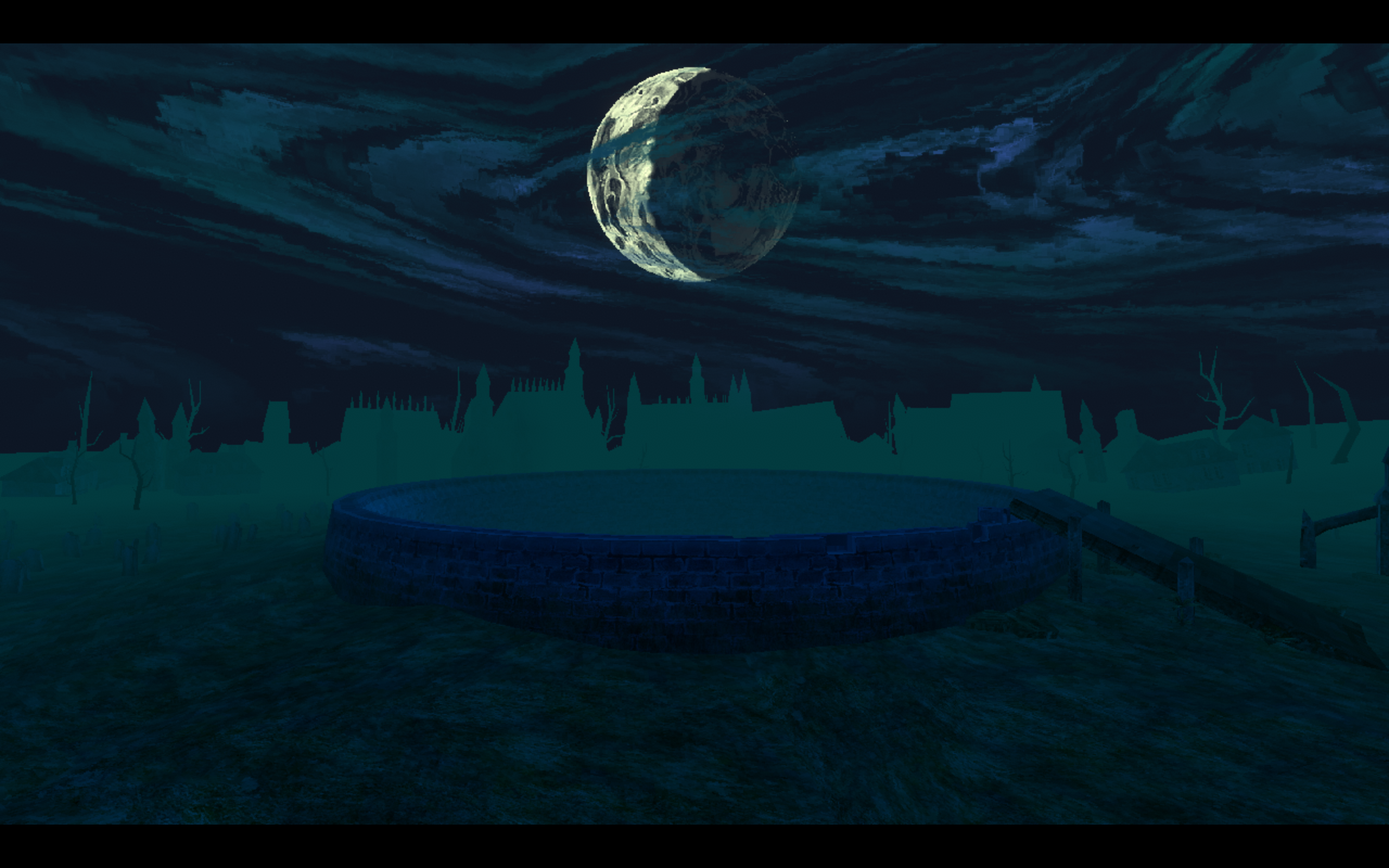
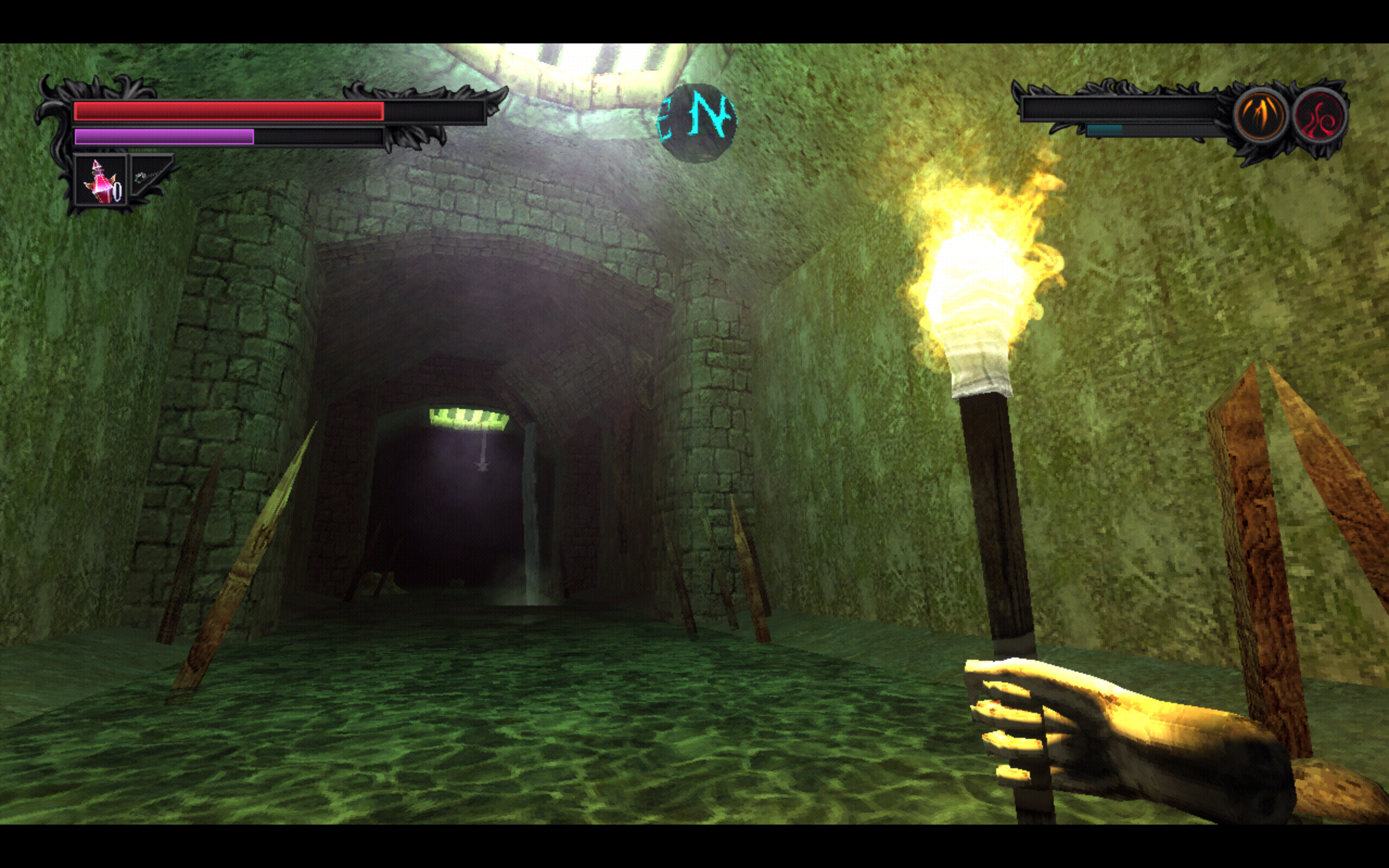
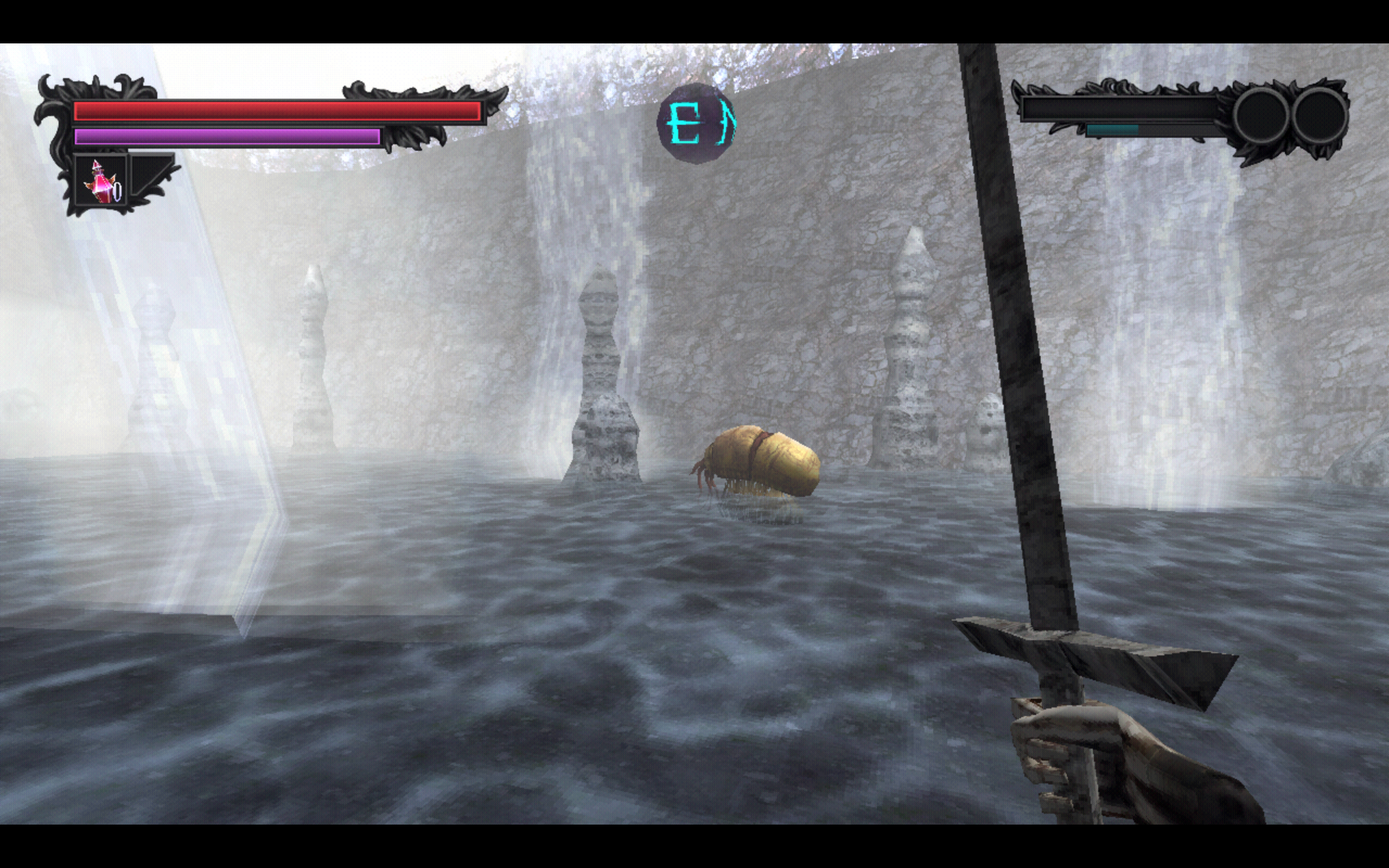
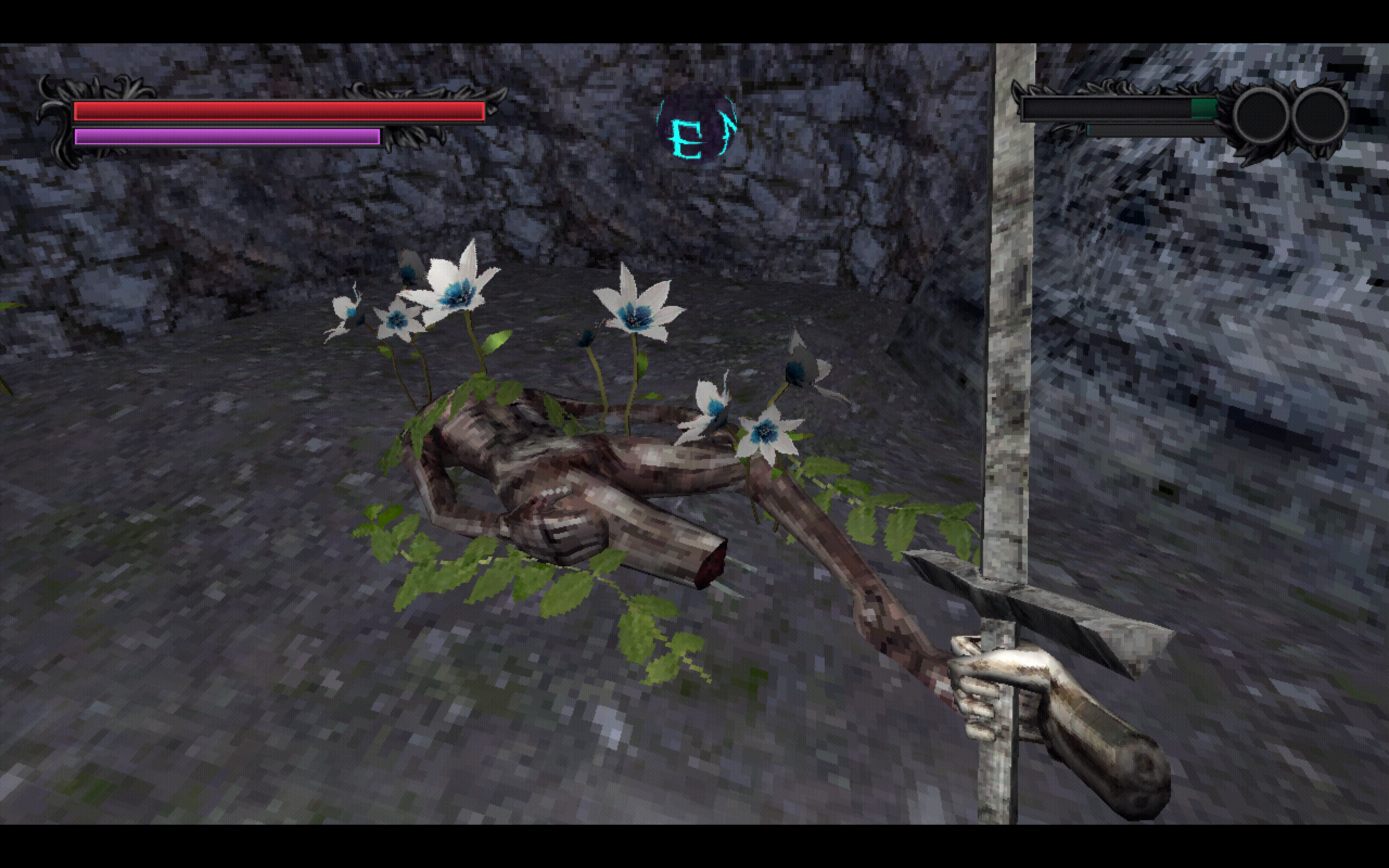
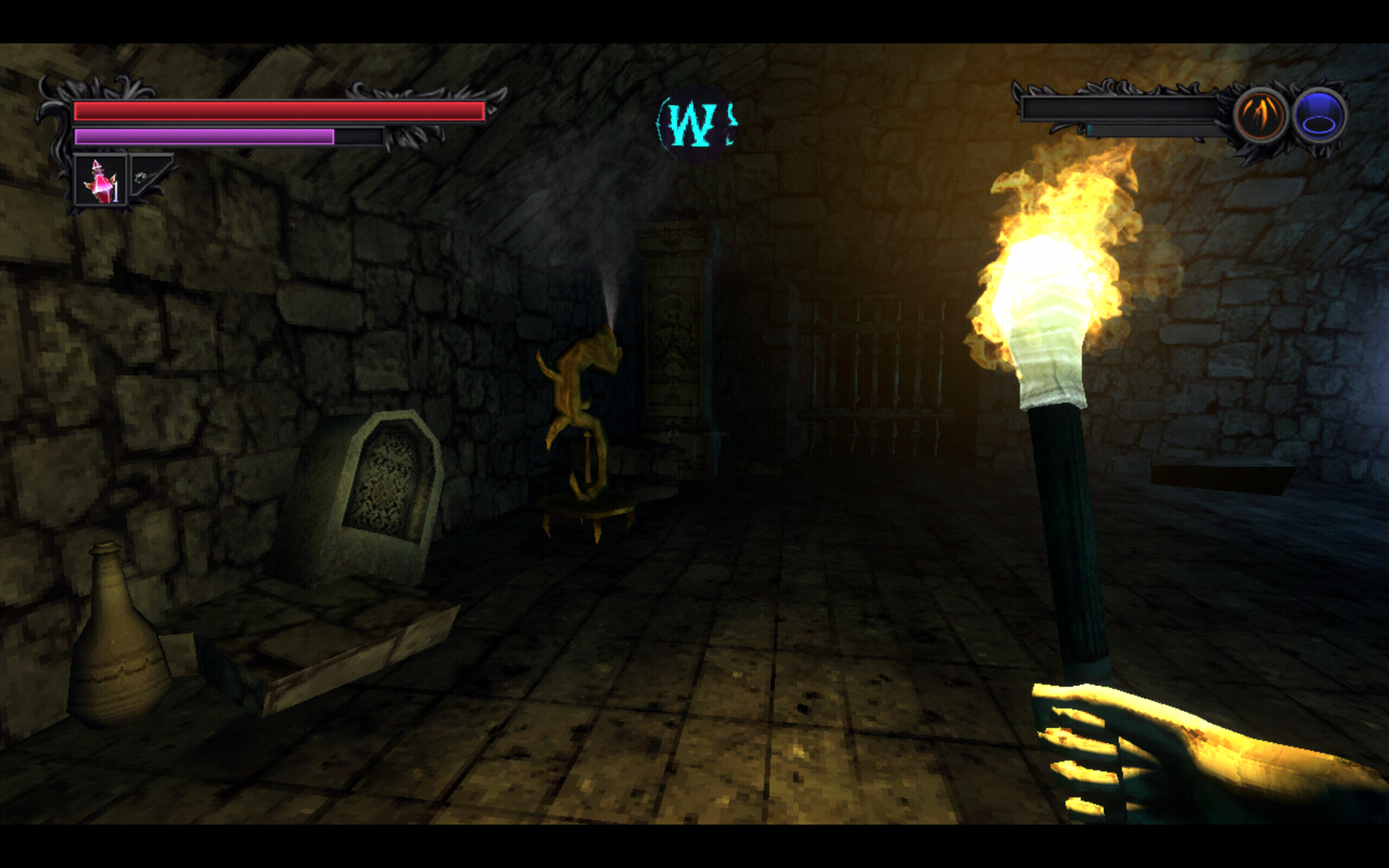
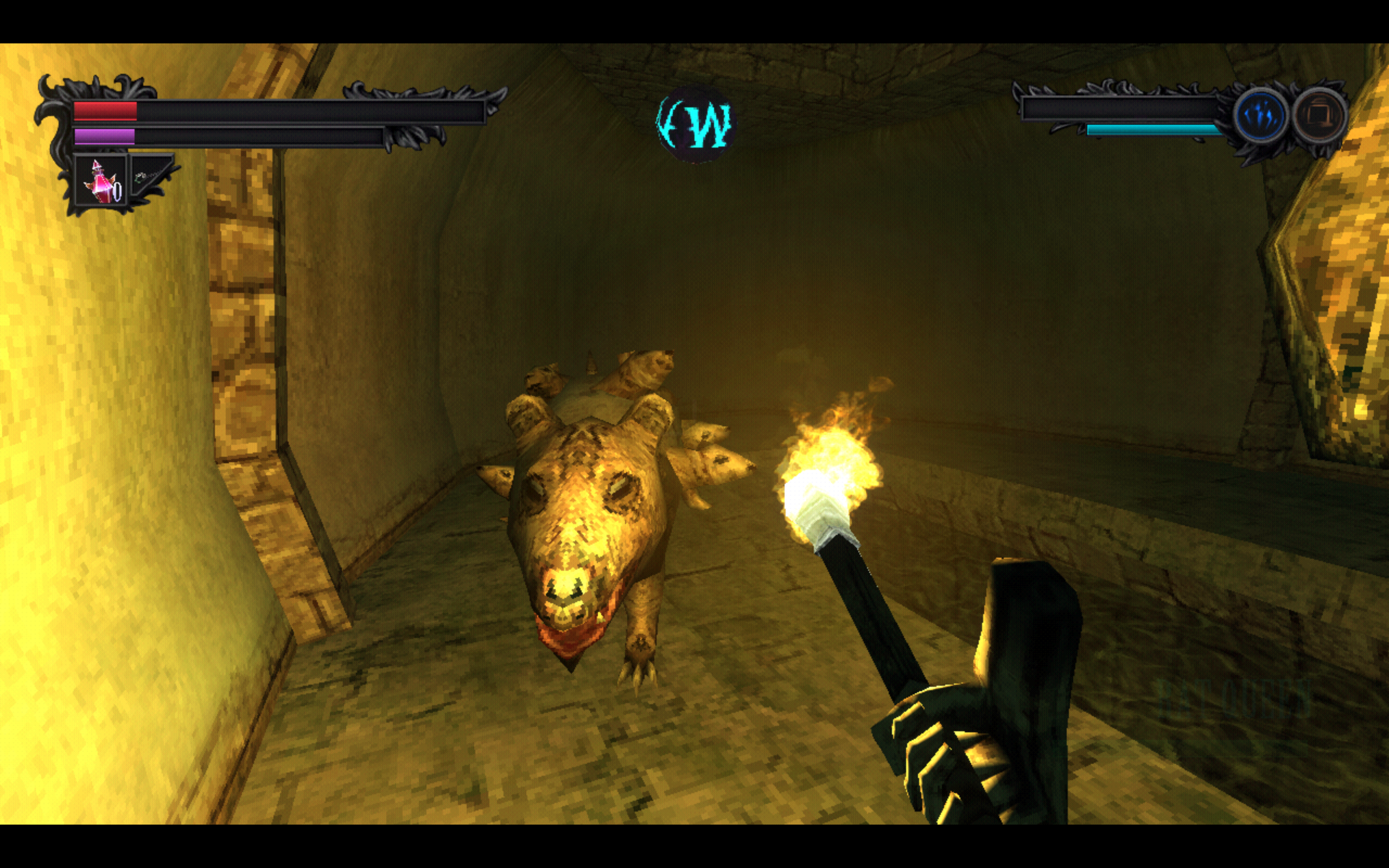
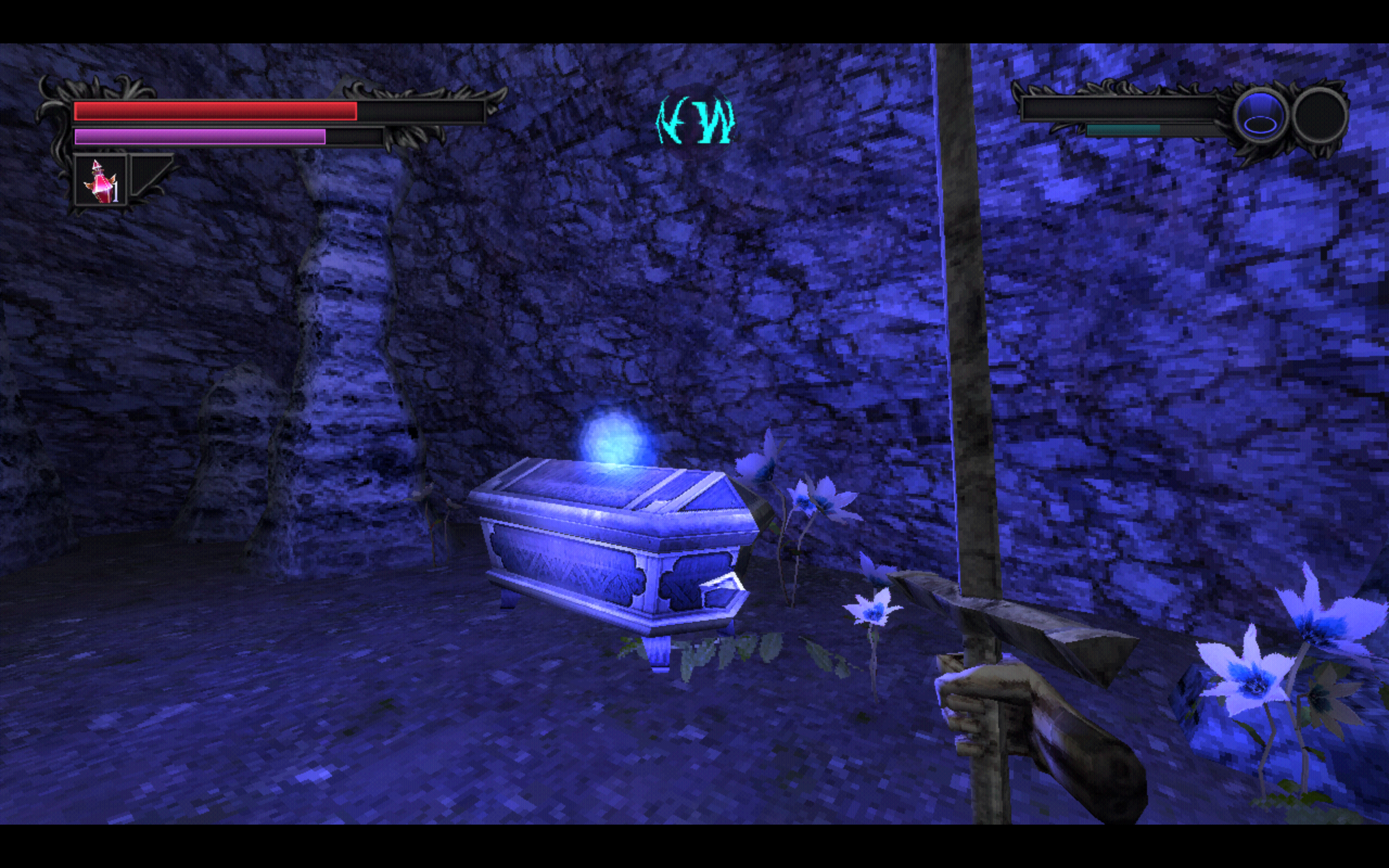
Some of these eyeless fiends are quick to go on the offensive, causing me to instinctively slip back into my classic King's Field charge > swing > retreat tactic and check every room's corners for any fun "surprises" waiting to attack while I'm busy facing something else. Like King's Field (as well as its even moodier, darker, and dare I say it, better, cousin Shadow Tower), fighting is a rhythmic dance of careful positioning and good timing, every battle never more than one bad move away from tearing straight through my health bar. Under these tense circumstances watching and then memorising enemy behaviour quickly becomes a vital survival trait—and an unsettling experience too.
Keep up to date with the most important stories and the best deals, as picked by the PC Gamer team.
Chopping off heads is all good fun, as is realising just how flammable some of these gloopy horrors are, but have you ever seen something break off from attacking you just to have a good sob about the horrors of itself and the cursed world at large? It's chilling.
Seeing the dead be disgusted with themselves is no reason to let my guard down though, especially as Lunacid is very clear that saving only happens at save points—neither checkpoints or convenient quicksaves exist here.
Like everything else in Lunacid, the draconian save system is much more than some cheap old-timey gimmick designed to bait my retro-leaning ego. It changes how I play. The game feels so much more dangerous and exciting because I'm forced to put my progress on the line every time I fight. I can't afford to experiment, to mess around and find out exactly how dangerous some specific enemy spell is—I have to assume everything can and will end my current run the instant I mess up. I have to commit to my actions and live (or die) with the result of whatever trouble I get myself into.
It truly feels like I have no control over this world because Lunacid doesn't even allow me to pause the game. A couple times I had to find what seemed to be the least dangerous corner in the area and hope for the best. When my phone rings and I really should answer that call… it's still enthralling. I devote myself to the game, or I die. Sorry, person trying to call me: I'm too busy fighting unholy abominations to care.

When baby Kerry was brought home from the hospital her hand was placed on the space bar of the family Atari 400, a small act of parental nerdery that has snowballed into a lifelong passion for gaming and the sort of freelance job her school careers advisor told her she couldn't do. She's now PC Gamer's word game expert, taking on the daily Wordle puzzle to give readers a hint each and every day. Her Wordle streak is truly mighty.
Somehow Kerry managed to get away with writing regular features on old Japanese PC games, telling today's PC gamers about some of the most fascinating and influential games of the '80s and '90s.

